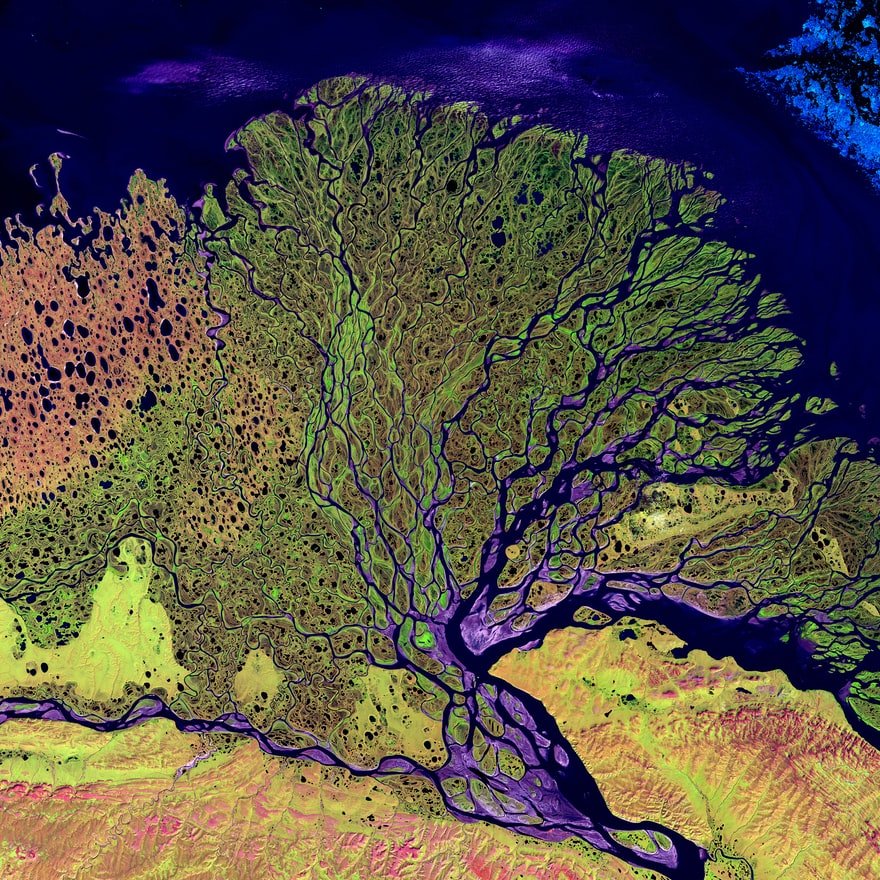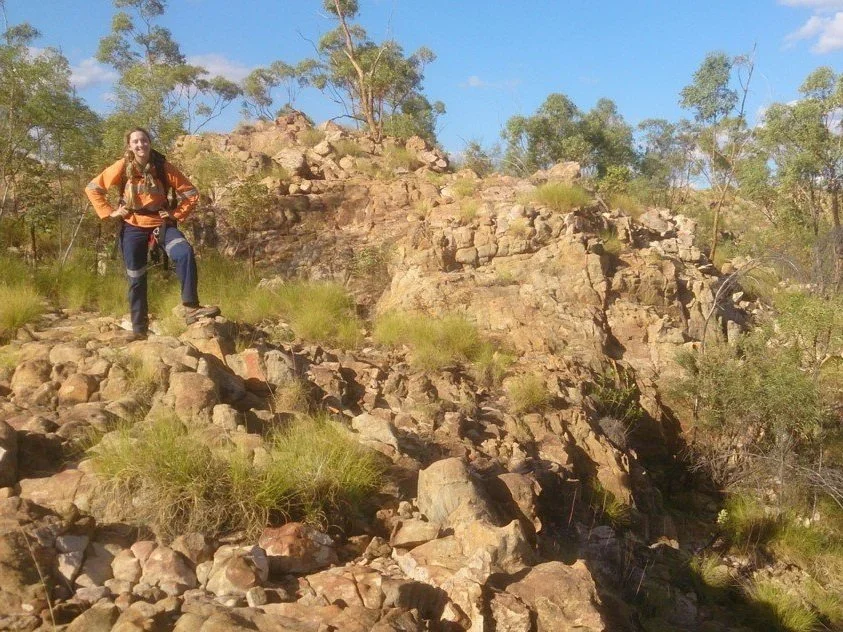
Laura Spelbrink
Innovation Labs Program Manager - FrontierSI
Bachelor of Arts (Political Science), Bachelor of Science (Geoscience, Chemistry), Master of Science (Geoscience)
November 2021
Laura Spelbrink is a project manager at a not-for-profit research and innovation centre focused on geospatial and space-related science.
Geospatial science uses data that has a location in physical space to understand the people, places and processes of the earth. Geospatial science uses various technologies including cartography (map-making), remote sensing (such as Earth observation from satellites in space), artificial intelligence, GPS (Global Positioning Systems) and Geographic Information Systems (GIS).
As a project manager, Laura is responsible for bringing people together from private industry, government and academia to deliver collaborative projects and work towards a common goal. Examples of projects that Laura manages include an online map portal to communicate climate change risk for the Pacific region, an industry innovation program for the defence industry and an Australia-wide housing affordability research project.
Day-to-day, Laura manages people, schedules and budgets to make sure that quality projects are delivered that meet everyone’s expectations.
How did you get to your current role?
Laura working on drill core as an Exploration Geologist
My geoscience journey has ranged from paleotectonic research in East Timor through almost a decade in the mining industry to my current role as a Project Manager in geospatial and space-related science.
After my undergraduate degree in Earth sciences, I completed a two-year Master of Science that focused on geological mapping in East Timor. I loved the problem-solving nature of research and relating what I saw in the field to big-picture Earth processes.
Following my postgraduate studies, I decided I wanted to keep pursuing adventure and field work and started working as an Exploration Geologist in the mining industry. I have always been fascinated by economic geology - the very specific geological conditions and processes that lead to the concentration of a valuable metal in a particular place.
During my eight years as an exploration geologist, I got to work in every state and territory in Australia, slept out under the stars, saw incredible places (and incredible rocks!), worked alongside traditional owners and made life-long friends.
As my career progressed, I realised how much of my role as an Exploration Geologist was really about problem solving and communication. I knew my next step was to use my technical and scientific background to bring people together to solve challenging problems–and that’s what has landed me in the role that I am in today
Laura and her colleague doing helicopter-supported field work.
Laura (very happily!) collecting a soil sample.
Earth observation from space image of rivers flowing out to sea.
What are the best parts about your job?
What are the hardest parts?
The best part about my job is being exposed to a range of different industries and working with a range of different people – my job is certainly never boring!
I love being able to use my scientific and technical background to come up with creative solutions to important environmental and social problems.
The hardest part about my job is managing many different things at once – from scientific and technical information to the expectations of project stakeholders. As a project manager I’m often not involved in the nitty-gritty of the technical work but instead am involved at a big-picture level. While it can be challenging at times, the opportunity to communicate the value of science, technology and innovation to solve important problems is my favourite part of my job.
Laura during field work in East Timor.
How well did your degree prepare you for your career path?
My varied and fascinating career to date is without a doubt a product of my Earth science education.
An Earth science education enables you to understand the world at different scales – from minerals under a microscope to continent-scale earth processes. I honestly believe that this ability to look at things in different ways makes geoscientists excellent creative problem solvers.
My science degree equipped me with invaluable analytical skills and taught me how to use evidence to support my opinions and arguments (both scientific and non-scientific).
While my degree wasn’t particularly focused on economic geology, GIS or remote sensing I gained a fundamental understanding of major Earth processes and systems – from the rock cycle to atmospheric science to the evolution of life.
Everything I learnt in my Earth science degree gave me a deep appreciation of the power and beauty of this amazing and complex planet that we live on. A geoscience education can lead to so many exciting opportunities and I would encourage any student to consider this field of study. Geoscience skills will be key to exploring for critical minerals for our energy transition, reaching our emissions targets and building the infrastructure of our future cities–pretty exciting stuff!
Laura doing field work as an Exploration Geologist in the Northern Territory, Australia
What advice would you give to students in your study area trying to decide on a career path?
Firstly, don’t feel that you need to choose a direction right away. Try as many things as you can. Work experience or vacation work can be a great way to get an idea of what career path you want to pursue. Ask as many questions as you can of people working in different fields – you will find that people are usually happy to share their story. Secondly, think about what you want to do day-to-day. Do you enjoy working outdoors? Working with people? Working in a lab?
Finally, don’t feel that once you have embarked on one particular track that you have to stay on it – there are so many transferrable skills in the field of Earth sciences and you have an entire career ahead of you to explore different options.
Connect with Laura






